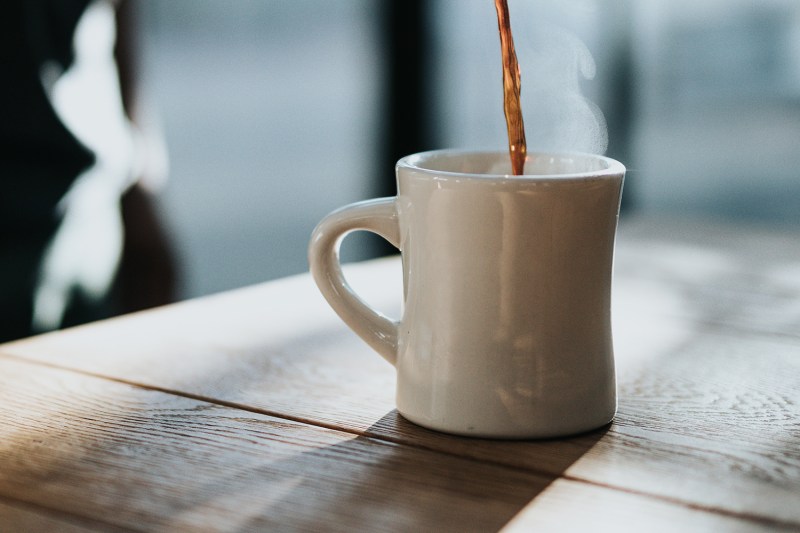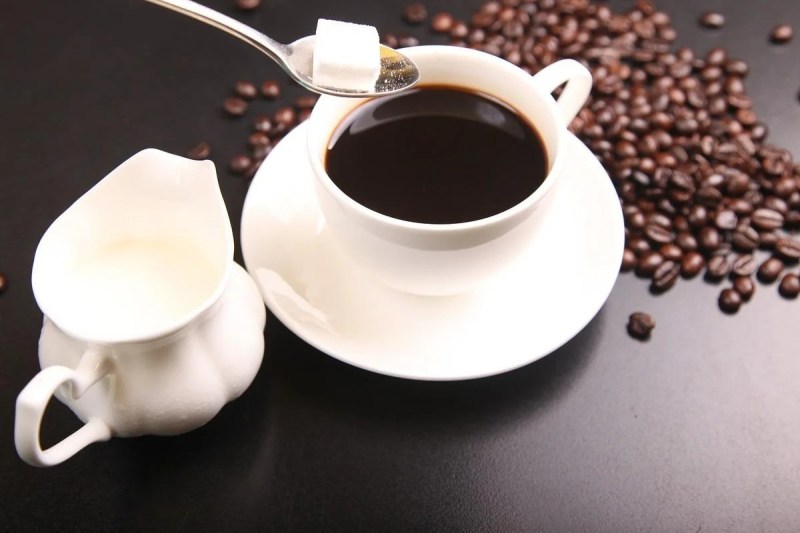
One of the most common morning rituals of people around the globe is the habitual consumption of coffee. For some, it’s an actual process, preferring to make their own perfect cup of pour-over or fresh French press brew, while others prefer to wait in line at their local cafe and have someone else make it for them. Whatever your route may be, coffee is consumed by millions on a daily basis. But once that first sip (or cup) hits, we start to feel the effects in more areas than one. Why does coffee make you poop and is it anything coffee lovers should be concerned about?
For most, is the elixir of the Gods, helping them to fully become alert and awake, allowing their brains to function at full capacity. It’s an instant jolt of alertness and focus. For some, however, it jolts another phenomenon as well. According to research, about 3 out of 10 people experience the unusual side effect coffee has on the digestive system. For those people, it makes them have to use the bathroom. While there is evidence as to why this phenomenon exists, the science behind it is still not exact. Let’s see why coffee does make you run to the bathroom and if you need to skip your morning cup.

Why does coffee make me poop right way?
- Acts as a laxative
- Too many compounds to pinpoint which have the effect
- Same effect as eating a large meal
Scientists are trying to pinpoint the reason this happens in certain individuals. Coffee itself comprises 1,000 different compounds, making it hard to understand the exact nature of this experience. When you consume coffee, it tends to increase the acidic activity of the stomach, which leads to the stomach dumping its contents faster than normal. It has also been proven that coffee has the effect of activating the large intestine the same as when you consume a large meal.
So, while the precise reason some individuals experience this laxative effect when drinking coffee is not yet certain, these are a few reasons why this happens as a byproduct of enjoying your cup of joe.
Is pooping after coffee normal?
While yes, to some people this is a normal side effect, on the other hand, only about 30% of coffee drinkers experience it. So, while the percentage is not that high, it is normal for some people.

Benefits of drinking coffee
The reason so many around the world consume coffee on a daily basis — aside from tasting like heaven — is the benefits it has on your health.
Increases energy and alertness
The number one reason so many of us consume coffee is the ability it has to help us start our morning off on the right note — it’s no wonder people joke about not wanting to talk to others until they’ve had their first cup. Coffee contains caffeine, which happens to have a profound effect on your gray matter and central nervous system. Caffeine is a stimulant that helps battle fatigue and drowsiness.
Improves cognitive function
Speaking of gray matter, coffee is great for helping increase your memory recall. Caffeine’s effect on neural activity, which was shown to increase short-term memory recall and reaction time, is overall helpful. It’s no wonder so many of us feel a little smarter and perkier after a cup first thing in the morning.
Another neat benefit of drinking coffee is it helps decrease the likelihood of developing Alzheimer’s, a slow-acting cognitive disease that affects memory.
Reduces risk of diabetes
The reason some individuals become diabetic over time is their bodies start to become resistant to insulin. There are studies showing coffee consumption has been associated with a lower risk of developing Type 2 diabetes.
Helps with weight management
Another wonderful reason to keep sipping your favorite coffee on a consistent basis is for its ability to help manage weight. Coffee is quite a potent thermogenic. Thermogenics have a great ability to create internal heat within the body, thus naturally raising your metabolism. This activity leads to increased fat loss and in turn, weight loss.

Downsides to drinking coffee
While there are numerous health benefits to regular coffee consumption, it does have a few drawbacks, just like all things in life.
Jitters and anxiety
One of the possible side effects of too much coffee is an elevated heart rate. Some people are more sensitive to caffeine than others, and this makes an individual feel jittery, anxious, and nervous. This generally happens because caffeine makes the body go into the “fight or flight” response, making anxiety worse and potentially causing panic attacks. While this is rare, it’s best to figure out your caffeine sensitivity first before upping your number of cups per day.
Mold and mycotoxins
You get what you pay for in life; most know this to be true. The same can be said of the coffee you purchase. One of the drawbacks of coffee is certain batches could have mold growing in them. Over time, if the coffee is stored improperly, that mold creates toxins called mycotoxins. These toxins, when consumed too much over a period of time, cause fatigue, grogginess, and could even poison you. Most of the time, those toxin levels are below the safety limit, but the cheaper your coffee beans, the higher the chance of them containing the toxins.
Quality coffee matters
While coffee may make you have to go number two upon consuming, there are plenty of benefits to consuming that cup of joe that can help you swallow that pill. Our best take is to find a good quality roaster or bean, choose your method of preparation, and if you need to bring that coffee with you somewhere, make sure you have a worthy thermos to help you keep it piping hot.

Listen to your body and how your daily coffee affects it
When revving up your gastrocolic reflexes with your daily cup of coffee, pay attention to how you react to it. Your bowels are doubly awake in the morning anyway, so increasing your gastrin levels first thing makes sense why certain people see an increase in needing the bathroom after.
Try these tips to adjust how your body reacts
If you are feeling too much movement after your coffee, there are a few tricks to try to see if your body stays a little calmer afterward.
- Use less creamer, or switch to an alternative milk.
- Cut back on the number of cups of if you have IBS or other bowel issues.
- Try drinking your coffee black or only with limited sweetener.
- Know that even decaf will make you poop.
If decaf will do the trick anyway, you might as well get that jittery, feel-alive pleasure for a bit as well. Since many adults have some form of lactose intolerance, try playing with the amount and kind of creamer you use and see if that helps.
It seems for the majority of us, no matter how much we want to put that liquid life down, when we drink it, it will make us need the bathroom faster and more often. You could work with it to get those bowels cleaned out like clockwork or try to stop drinking coffee altogether. Know if you stick with being a bean juice lover for life, coffee does make you poop, and it’s all about what’s going on in your gut.



